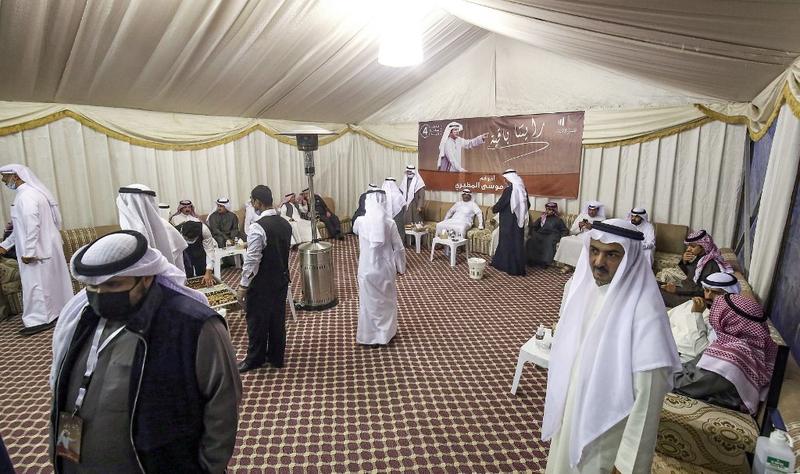 Kuwaitis attend an electoral campaign meeting ahead of the upcoming election scheduled for later in the week, in Kuwait City on Nov 30, 2020. (PHOTO / AFP)
Kuwaitis attend an electoral campaign meeting ahead of the upcoming election scheduled for later in the week, in Kuwait City on Nov 30, 2020. (PHOTO / AFP)
KUWAIT - Kuwaitis vote in legislative polls on Saturday as the Gulf state faces its worst economic crisis in decades, posing a challenge for the government’s often stormy relationship with parliament, that has hampered fiscal reform.
Turnout is expected to be lower than in past elections due to concern over COVID-19, which along with low crude prices, has battered state finances in the wealthy oil-producing nation. Low turnout could strengthen the showing of tribal, Islamist and other candidates who can rally supporters to head to polling centres, analysts said.
“Kuwaiti opposition who boycotted (previous) polls are moving to run and vote, and this could strengthen their presence,” said Kuwaiti political analyst Mohamad al-Dosayri.
More than 300 candidates, including 29 women, are vying for 50 seats in the Gulf’s oldest and most outspoken assembly with legislative powers. Critics say parliament has long stalled investment and economic and fiscal reform in the cradle-to-grave welfare state.
Frequent clashes between the cabinet and assembly have led to successive government reshuffles and dissolutions of parliament. The emir, who has final say, picks a prime minister who selects a cabinet. The current government is due to resign after the elections.
Sheikh Nawaf al-Ahmad al-Sabah took the reins as emir in September following the death of his brother.
Frequent clashes between the cabinet and assembly have led to successive government reshuffles and dissolutions of parliament. The emir, who has final say, picks a prime minister who selects a cabinet. The current government is due to resign after the elections
ALSO READ: Kuwaitis await new crown prince as Arab leaders mourn late emir
Campaigning, which took place mostly on social media and local TV channels due to COVID-19 measures against gatherings, has focused on the economy, corruption and demographics in a country where foreigners make up the bulk of the workforce.
“The issues are the same - health, education, housing - as none of these have been resolved yet,” government employee Hamad al-Otaibi, 43, told Reuters ahead of the elections.
The nearly US$140 billion economy is facing a deficit of US$46 billion this year. A priority will be overcoming legislative gridlock on a bill that would allow Kuwait to tap international debt markets.
READ MORE: Kuwait's new emir takes oath as country mourns former leader
Opposition
Sheikh Nawaf has called for unity to face challenges at home and in a region experiencing heightened tension between Kuwait’s larger neighbours Saudi Arabia and Iran.
Late ruler Sheikh Sabah al-Ahmad in 2012 broke the hold of opposition groups on parliament by using executive powers to amend the voting system, sparking large protests.
Under the old electoral system, voters were allowed to cast ballots for up to four candidates, which the opposition says allowed alliances that partly made up for the absence of political parties, which are officially barred.
The system introduced in 2012 allows votes for only a single candidate, which the opposition says makes alliances difficult.
Kuwaiti opposition figures have proposed electoral reforms and a pardon for dissidents, many in self-exile, to the new emir.
“There have been some reforms in the judiciary and the Emiri Diwan,” or court, said a Kuwaiti politician who asked not to be named. “We heard echoes of more reforms after elections.”


